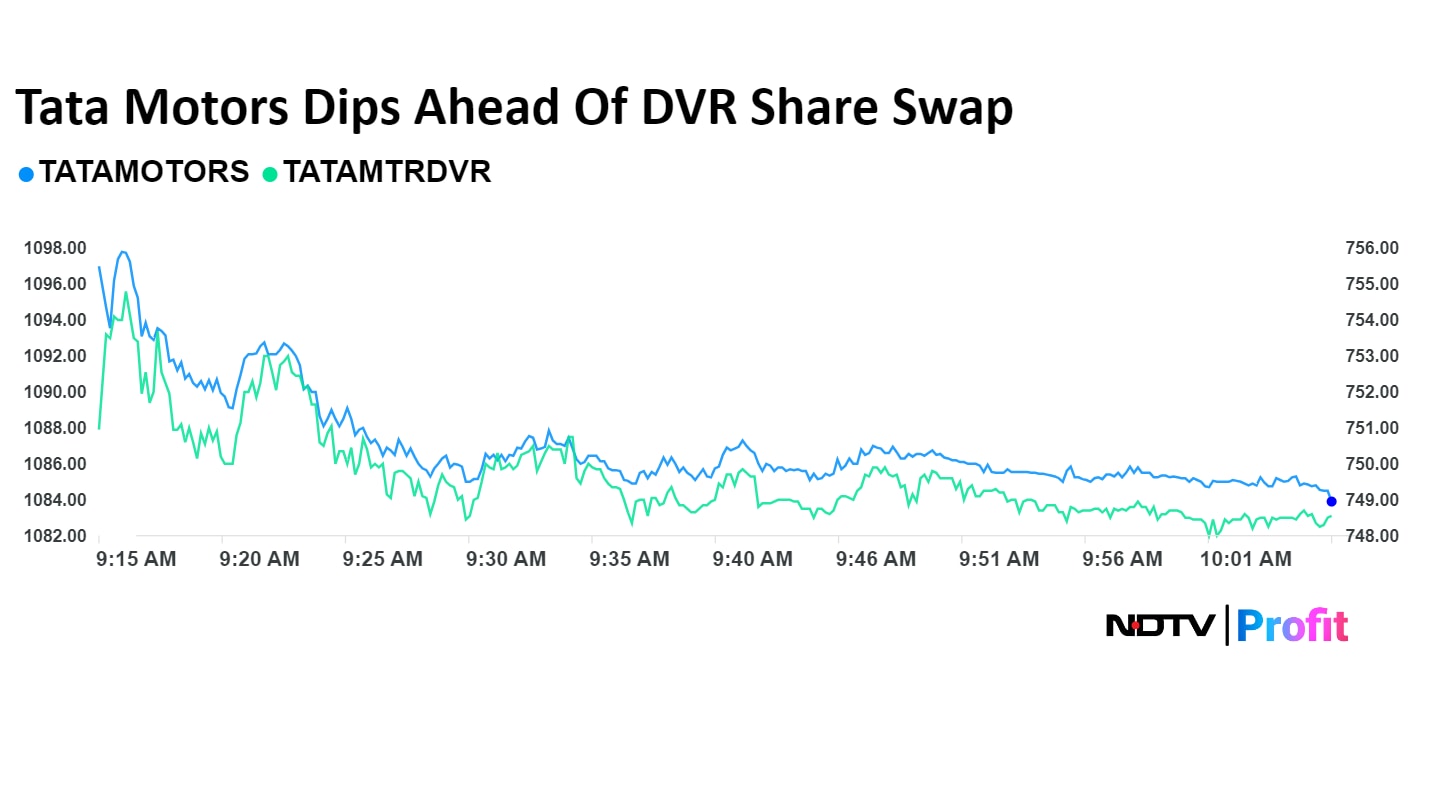
Tata Motors Ltd. announced Sept. 1 as the record date for the swap of its differential voting rights shares with ordinary shares.
Tata Motors Ltd.'s decision to extinguish its listed DVR shares will have three major tax implications for investors.
The company will cancel DVR shares, listed since 2008, by issuing ordinary shares. The automaker will issue seven ordinary shares of Tata Motors for every 10 DVRs held by investors. That's about a 23% premium over the DVRs' pre-closing price and a 30% discount over ordinary shares.
Tax Implications
PB Balaji, chief financial officer at Tata Motors had said in an interview with NDTV Profit that cancelling the DVR shares will have three tax implications:
The delisting constitutes capital reduction, having the same implications as a liquidation. When the shares are delisted in 12-15 months, all accumulated profits on the balance sheet at that given point will be considered deemed dividend to current DVR shareholders. As a result, the deemed dividend would have tax consequences (withholding tax).
Different persons purchasing DVR shares at different times result in different cost bases. Long-term capital gains from these transactions will be taxed.
The cancellation requires the company to establish a new trust to accept and sell company shares. Any short-term capital gains earned during the period would also be taxed.
Once the capital restructuring is completed, Tata Motor's equity capital will be reduced by approximately 4%, Balaji said. DVR cancellation would increase earnings per share for all shareholders and increase ordinary share liquidity in the market by 18%. Tata Motors' overall market capitalisation was lowered because DVR shares trade at a discount to ordinary shares. As a result of this corporate action, the company's total market share would also increase, Balaji said.

Tata Motors shares were trading marginally lower at 1,084 as of 10:10 a.m., compared with a 0.53% rise in the NSE Nifty 50. Total traded quantity so far in the session stood at 0.12 times of the average 30-day volume.
The share has risen almost 39% year-to-date and 76% in the past 12 months. The RSI stood at 38.41.
Out of 35 analysts tracking Tata Motors, 23 maintain a 'buy' rating, seven recommend a 'hold,' and five suggest 'sell', according to Bloomberg data. The average 12-month consensus price target implies an upside of 8.4%.
Essential Business Intelligence, Continuous LIVE TV, Sharp Market Insights, Practical Personal Finance Advice and Latest Stories — On NDTV Profit.























